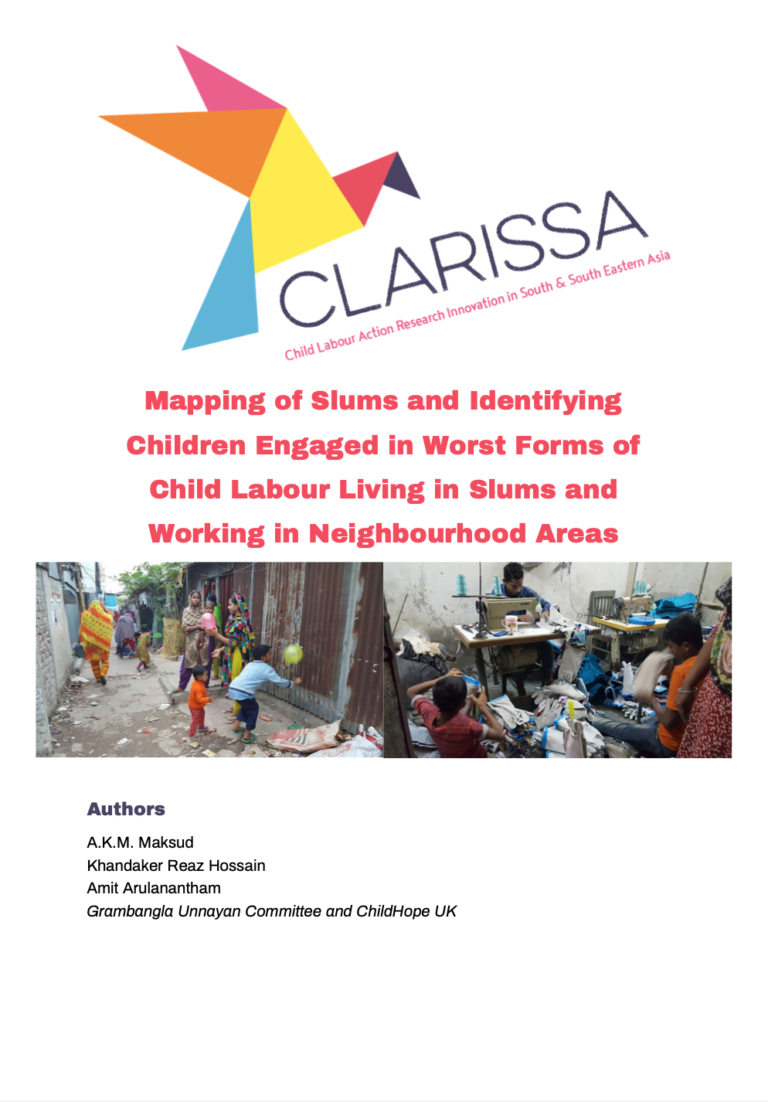The National Child Labour Survey 2013 estimated that Bangladesh is home to 3.45 million working children, including 1.28 million engaged in hazardous labour. Low commitment from the Ministry of Labour and Employment to tackling hazardous child labour in hidden and informal workplaces pushes the worst forms of child labour (WFCL) into informal, unregulated domains. Making visible hidden and overlooked children who are working on the margins associated with extended supply chains and identifying solutions in these informal spaces is a priority. The CLARISSA consortium, led by the Institute of Development Studies (IDS), UK with the Terre des Hommes Foundation (Tdh), ChildHope UK (CH) and the Consortium for Street Children (CSC) is working with its southern partners and global corporations. The CLARISSA consortium aims to identify hidden and overlooked children and to surface key drivers of modern slavery and WFCL to develop interventions to counteract them through participatory processes.
Dhaka has a population of about 19 million and many think it is a city of fortune. People come from all over the country to settle in Dhaka and many low-cost settlements (known as slums) have emerged since the country became independent.
Findings of national survey reports suggest there is a high concentration of child labour in the slums of Dhaka, linked with the global supply chain of products. In order to understand the drivers of child labour in the slum areas of Dhaka, a research team formed of the Grambangla Unnayan Committee (GUC) with ChildHope UK designed and conducted a mapping and listing exercise, in consultation with CLARISSA consortium colleagues.

